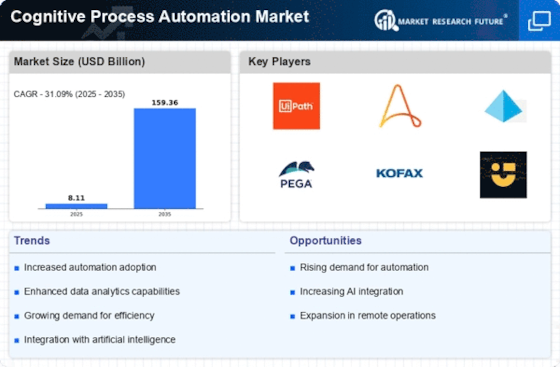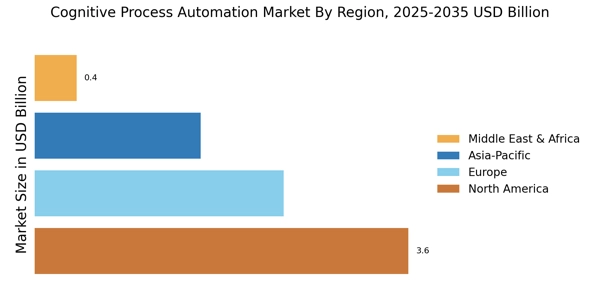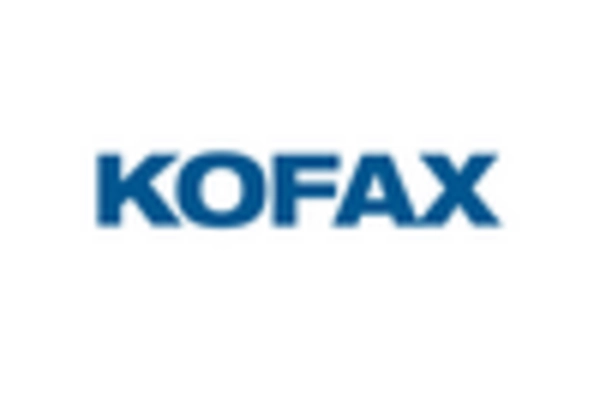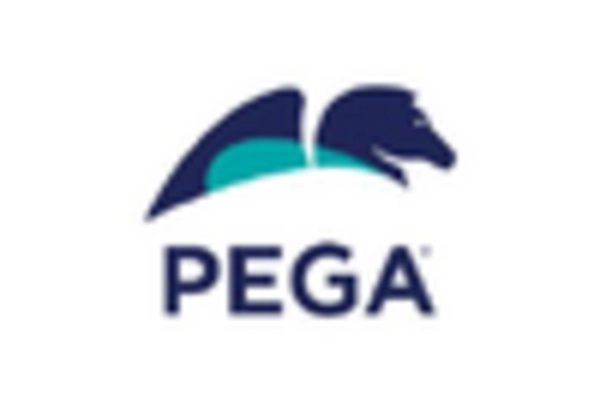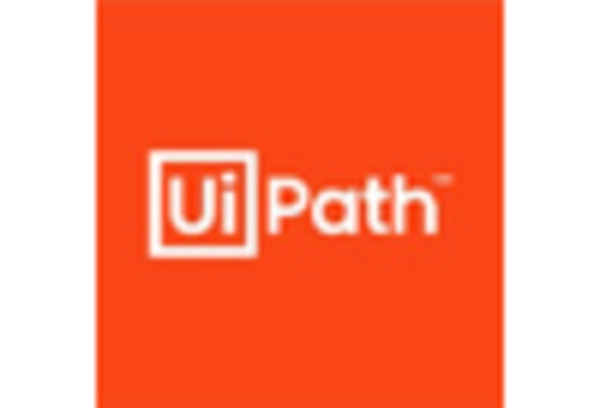Rising Demand for Automation Solutions
The Cognitive Process Automation Market is experiencing a notable surge in demand for automation solutions across various sectors. Organizations are increasingly recognizing the potential of cognitive process automation to enhance operational efficiency and reduce costs. According to recent estimates, the market is projected to grow at a compound annual growth rate of approximately 30% over the next five years. This growth is driven by the need for businesses to streamline processes, minimize human error, and improve service delivery. As companies seek to remain competitive, the integration of cognitive technologies into their operations appears to be a strategic priority. This trend is likely to continue as more organizations invest in automation technologies to achieve their business objectives.
Advancements in Artificial Intelligence
The Cognitive Process Automation Market is significantly influenced by advancements in artificial intelligence (AI). Innovations in machine learning, natural language processing, and data analytics are enabling organizations to automate complex processes that were previously reliant on human intervention. These technological advancements are not only enhancing the capabilities of cognitive process automation but also expanding its applicability across various industries. For instance, the integration of AI in automation solutions is expected to drive market growth, with projections indicating that the AI segment alone could account for over 40% of the total market share by 2026. This evolution suggests that as AI technologies continue to mature, their adoption within the cognitive process automation landscape will likely accelerate.
Increased Focus on Operational Efficiency
The Cognitive Process Automation Market is witnessing an increased focus on operational efficiency as organizations strive to optimize their workflows. Companies are actively seeking solutions that can automate repetitive tasks, thereby freeing up human resources for more strategic initiatives. This shift is particularly evident in sectors such as finance, healthcare, and manufacturing, where operational efficiency is paramount. Market data indicates that organizations implementing cognitive process automation can achieve up to a 50% reduction in processing times and a significant decrease in operational costs. As businesses continue to prioritize efficiency, the demand for cognitive process automation solutions is expected to rise, further propelling market growth.
Regulatory Compliance and Risk Management
The Cognitive Process Automation Market is also influenced by the increasing emphasis on regulatory compliance and risk management. Organizations are under constant pressure to adhere to stringent regulations and mitigate risks associated with their operations. Cognitive process automation offers a viable solution by automating compliance-related tasks and ensuring that organizations meet regulatory requirements efficiently. This is particularly crucial in sectors such as finance and healthcare, where compliance failures can result in severe penalties. Market analysis suggests that the demand for cognitive process automation solutions that enhance compliance and risk management capabilities is likely to rise, as organizations seek to safeguard their operations and maintain regulatory standards.
Growing Need for Data-Driven Decision Making
The Cognitive Process Automation Market is increasingly shaped by the growing need for data-driven decision making. Organizations are recognizing the importance of leveraging data analytics to inform their strategies and improve outcomes. Cognitive process automation facilitates the collection and analysis of vast amounts of data, enabling businesses to make informed decisions swiftly. This trend is particularly relevant in industries such as retail and logistics, where timely data insights can lead to competitive advantages. As the emphasis on data-driven strategies intensifies, the demand for cognitive process automation solutions that can provide actionable insights is likely to grow, thereby enhancing the market's trajectory.


